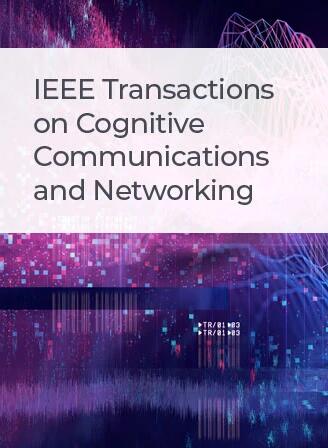利用神经接收器的混合模型训练适应非线性发射机
IF 7.4
1区 计算机科学
Q1 TELECOMMUNICATIONS
IEEE Transactions on Cognitive Communications and Networking
Pub Date : 2023-08-23
DOI:10.1109/TCCN.2023.3307948
引用次数: 0
摘要
本文提出了一种新颖的混合模型转移学习方法,专为端到端 OFDM 神经接收器设计,可有效管理多通道和非线性发射器。混合模型转移学习法使用混合瑞利信道和其他模糊前端模型。这一两步过程可补偿非线性前端实现和不同信道,从而训练出稳健的神经接收器。使用的神经接收器是深度复杂卷积网络(DCCN),它用可训练层取代了传统的通信块,可纠正发射器的非线性性能和物理层的其他缺陷。这种训练方法将 DCCN 的误码率 (BER) 提高了 35%,与其他完成相同任务的训练方法相比,训练时间缩短了 19%,同时还能适应不同的衰减信道,并对功率放大器模型中的噪声具有鲁棒性。对 28 GHz 有源相控阵封装(AiP)和氮化镓 Hemt 功率放大器的测量表明,经过训练的 DCCN 能够适应非线性行为,而不会牺牲误码率。这项工作展示了针对多种器件工作状态和信道的训练如何帮助开发出一种稳健的深度神经网络,能够在多种信道环境中解调受到非线性失真影响的 OFDM 符号,而无需重新训练。本文章由计算机程序翻译,如有差异,请以英文原文为准。
Adapting to Nonlinear Transmitters With Hybrid Model Training for Neural Receivers
This paper proposes a novel hybrid model transfer learning approach designed for end-to-end OFDM neural receivers that effectively manage multiple channels and nonlinear transmitters. The hybrid model transfer learning method uses mixed Rayleigh channels and other obscured front-end models. This two-step process compensates for nonlinear front-end realizations and different channels, training a robust neural receiver. The neural receiver used is a deep complex convoluted network (DCCN), which replaces the conventional communication blocks with trainable layers that can correct the transmitter’s nonlinear performance and other imperfections in the physical layer. This training approach improves the DCCN by 35% for bit error rate (BER), and training time can be reduced by 19% compared to other training approaches for the same tasks while adapting to different fading channels and being robust to noise in power amplifier models. Measurements on both a 28 GHz active phased array in package (AiP) and a GaN Hemt PA show that the trained DCCN can adapt to nonlinear behavior without sacrificing BER. This work demonstrates how training for multiple device operation states and channels helps develop a robust deep neural network capable of demodulating OFDM symbols subject to nonlinear distortions in multiple channel environments without retraining.
求助全文
通过发布文献求助,成功后即可免费获取论文全文。
去求助
来源期刊

IEEE Transactions on Cognitive Communications and Networking
Computer Science-Artificial Intelligence
CiteScore
15.50
自引率
7.00%
发文量
108
期刊介绍:
The IEEE Transactions on Cognitive Communications and Networking (TCCN) aims to publish high-quality manuscripts that push the boundaries of cognitive communications and networking research. Cognitive, in this context, refers to the application of perception, learning, reasoning, memory, and adaptive approaches in communication system design. The transactions welcome submissions that explore various aspects of cognitive communications and networks, focusing on innovative and holistic approaches to complex system design. Key topics covered include architecture, protocols, cross-layer design, and cognition cycle design for cognitive networks. Additionally, research on machine learning, artificial intelligence, end-to-end and distributed intelligence, software-defined networking, cognitive radios, spectrum sharing, and security and privacy issues in cognitive networks are of interest. The publication also encourages papers addressing novel services and applications enabled by these cognitive concepts.
 求助内容:
求助内容: 应助结果提醒方式:
应助结果提醒方式:


